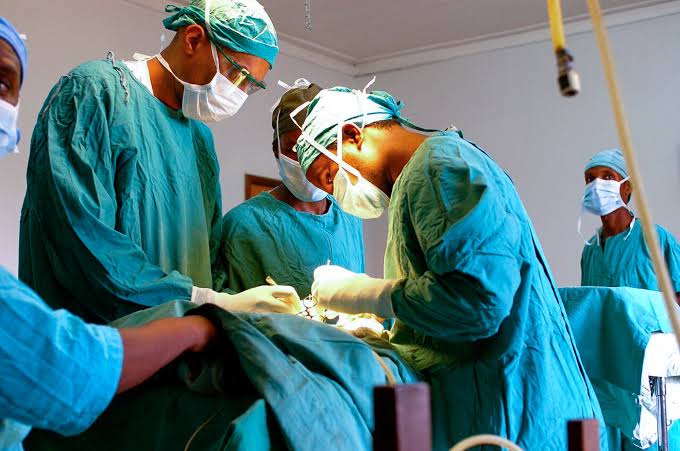Health
Do Neurologists Always Perform Surgery?

Last Updated on March 11, 2024 by Joshua Isibor
Neurologists treat neurological disorders; neurology treatment often is combined with other internal therapies. Neurological disorders include peripheral nerve disorders, MS, brain tumors, tremors, headaches, epilepsy, sleep disorders, spinal cord injuries, ALS, Parkinson’s disease, and Alzheimer’s disease. Neurologists provide only medication-based treatments.
Neurosurgeons provide treatments via surgical and non-surgical methods to primarily treat injuries/ ailments on the nervous system, brain, and spine. Based on requirements, neurosurgeons assist general practitioners, emergency room doctors, physicians, internists, and neurologists.
Neurosurgeons are primarily specialized to treat conditions such as aneurysms, peripheral nerve issues, blocked arteries, brain tumors, spine tumors, and congenital disabilities. Also, top neurosurgery hospitals in Bangalore provide non-surgical requirements, such as low-back pain and Parkinson’s disease.
For example, they work with neuro physiotherapists to help elderly and patients with spinal cord injuries or Parkinson’s disease to improve their balance, coordination, and posture. They can recover quickly and regain their normal life thanks to such a collaboration.
When looking for a neuro physiotherapist for their condition, patients can browse the web to get more information. If they’re struggling with their search efforts, they can use keywords like ‘neuro physiotherapist near me’ on their preferred search
Tools such as CT, MRI, PET, and MEG assist neurosurgery. CT scans provide an insight into the brain and spine. MRI scans provide a detailed insight into soft tissues. PET scan is helpful to understand the nervous system metabolism. MEG scans are beneficial to map the brain. Various other radiology tools assist any neurosurgeon in providing the best treatment.
UNDERSTANDING NEUROSURGERY
Neurosurgeons use cages, plates, rods, and screws to treat ailments, and such measures are sought only as a final remedy after trying non-surgical methods. The top neurosurgery hospital in Bangalore provides various types of neurosurgery such as conventional open surgery, endoscopic surgery, microsurgery, stereotactic radiosurgery, endovascular surgery, spinal neurosurgery, and psychiatric neurosurgery.
Other neurosurgery sub-categories at top neurosurgery hospitals in Bangalore include stereotactic neurosurgery, spinal neurosurgery, skull base neurosurgery, peripheral nerve surgery, pediatric neurosurgery, neurovascular surgery, neuro-oncology, functional neurosurgery, and endoscopic cranial surgery.
Only specialized and certified neurosurgeons can perform surgery; few jurisdictions expect the neurosurgeon to obtain a special license to function.
Before proceeding with surgery, neurosurgeons at any top neurosurgery hospital in Bangalore will consider the factors such as the possibility of non-surgical treatment, success percentage, risk factor, time taken for the surgery, recovery duration, and the aftermath of performance/ non-performance of the surgery.
Moreover, patients are encouraged to make the most of their appointment with neurosurgeons to achieve a more favorable outcome. For instance, they should prepare a list of health issues they want to discuss. They should inform their neurosurgeons about any changes they experience in their overall health. They should also use the opportunity to discuss all their current medications, including prescription medications, over-the-counter medications, and multivitamins.
With these things in mind, neurosurgeons can assess patients’ current medical condition and the necessity of neurosurgery or a non-surgical treatment.
POPULAR TYPES OF NEUROSURGERY
Generally, neurosurgery is used to fix an abnormality in the brain, nervous system, and spinal cord. Neurosurgeons perform different types of surgeries to address certain neurological conditions. These include the following:
Conventional open surgeries are performed at any top neurosurgery hospital in Bangalore to treat internal skull injuries; a small part of the skull is removed and placed back in this surgery.
The neurosurgeon will use a high-speed drill to open the brain and perform a specific surgical repair.
Endoscopic surgery treats tumors, hydrocephalus, intracranial bleeds, and cerebrospinal fluid leaks. This is done by inserting an endoscope in the skull; the endoscopy guides the surgery by broadcasting the image.
Microsurgery is helpful to treat aneurysms and perform microdiscectomy, carotid endarterectomy, and laminectomy. The surgery is performed with the assistance of magnifying eyewear; often, magnified images on the monitor/ screen are relied on.
Stereotactic radiosurgery is performed to treat Alzheimer’s disease, epilepsy, and Parkinson’s disease. They are helpful for other medical requirements, such as gene therapy. The surgery is done by using radiation beams; the electromagnetic fields in the surgery are utilized along with radiation therapy, gamma knife, etc.
Spinal neurosurgery is performed to treat spondylosis, spinal arthritis, and the spine in general. The neurosurgery tools involve power drills and spinal rongeurs. The additional tools are handy to perform complex surgical requirements such as removing herniated discs, keyhole surgery, and removing bone.
CONCLUSION
Neurosurgery helps to recover from internal ailments and it is performed either standalone or along with other treatments. Due to the growing demand in the healthcare system, various niches and sub-niches of neurosurgery are coming up very often. It is recommended to choose the relevant neurosurgeon by narrowing the requirements.
ALSO, READ 3 Things That Can Help Reverse Skin Damage
Originally posted 2022-02-11 09:33:22.


-



 Text Messages5 months ago
Text Messages5 months agoBEST LOVE CONFESSION MESSAGES FOR HER OR HIM
-



 Sex Education3 months ago
Sex Education3 months ago10 Simple Hack to Make a Girl Send Her Nudes
-



 Text Messages5 months ago
Text Messages5 months agoHeart Touching RIP Uncle Quotes
-



 Text Messages5 months ago
Text Messages5 months agoBest Good Luck Wishes Before and After Surgery, for Family and Friends
-



 Text Messages6 months ago
Text Messages6 months agoFreaky and Dirty Paragraphs For Him Copy And Paste Yahoo
-



 Uncategorized3 months ago
Uncategorized3 months agoHOW TO FALL IN LOVE WITH YOURSELF
-



 Uncategorized4 months ago
Uncategorized4 months agoHOW TO KISS A BOY FOR THE FIRST TIME
-



 Health5 months ago
Health5 months ago5 Unknown Ways To Maintain Skin Health